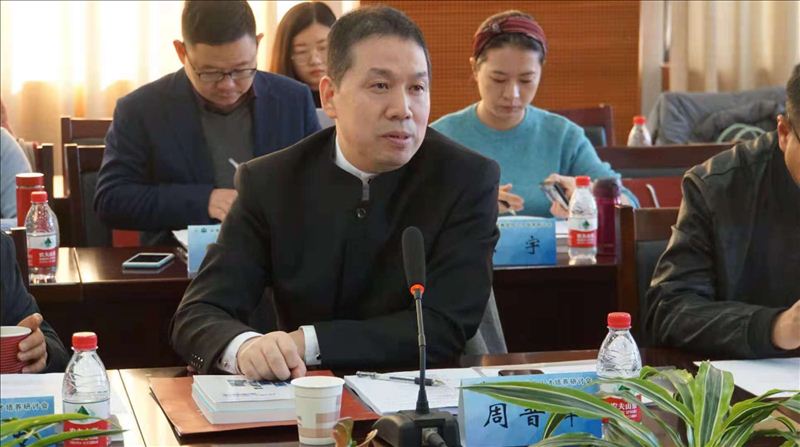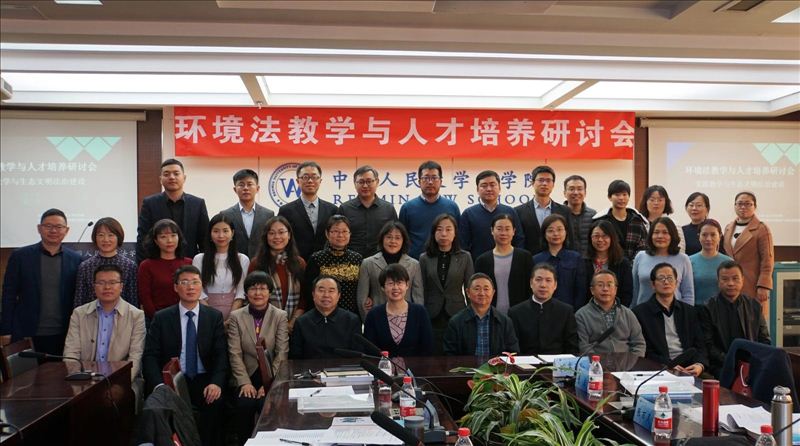On the morning of November 16, the seminar on environmental law teaching and talent training under the theme of “Practical Teaching and Construction of Ecological Civilization Rule of Law” was held at the Renmin University of China Law School. The seminar was hosted by Renmin University of China Law School and Dr. Zhou Jinfeng, the Secretary General of CBCGDF delivered a speech at the seminar.
In his speech, Dr. Zhou said that the close integration of teaching and practice is very important. The core of teaching is to serve the practice, socialist reform and economic development. In this regard, CBCGDF has not only brought many environmental public interest litigation (EPIL) cases, but also there have also been many case seminars, seminars on new laws and regulations, seminars on controversial laws and regulations, and we have always attached great importance to contacting more social organizations and volunteers to discuss various environmental legal issues encountered in practice.
There are several disputes that have existed in the practice of EPIL and some have not yet been resolved. I hope that the legal theory community can continue to study:
1. Issues about the subject of EPIL
CBCGDF filed a public interest litigation case concerning the environmental pollution in the Tengger Desert. The case was listed as the No. 75 guidance case by the Supreme People's Court. This is the first time that EPIL cases have become a guiding case. The significance of the case is to point out the subject of litigation encountered in the practice of EPIL. With the promulgation of the judgment of the Supreme People's Court, the issue of the qualification of the plaintiff of environmental public interest civil litigation has been well solved in practice and the development of environmental public interest litigation has been promoted. However, I still recommend strengthening the study of such issues in the teaching of law, because this issue has still not been completely solved in reality.
2. On the issue of environmental pollution caused by food take-out platforms
Dr. Zhou pointed out that there is a huge environmental pollution problem in the take-away platforms. In the EU, even the straws are not allowed to be used, but in our country, consumers have no choice of green consumption.
In China, there are clear regulations on this issue in the law. Any unit or individual must save resources and protect the environment. However, many people, including law enforcement officials and scholars, believe that this is a law with a false name: the first is not easy to estimate, the second is without specific penalties, it is difficult to apply in one case. But we don't think so. It is illegal to choose not to apply the law in the first place. With regard to penalties, the pollution of the environment has caused enormous damage. The polluters should be punished according to the degree of damage caused to the environment. With regard to the principles of law, the general provisions should apply, and the court should apply as a standard when trying cases. Research in this area also hopes to be strengthened.
3. The state should actively participate in the formulation and implemantation of the world environmental law
I have participated in the discussion of the Global Pact for the Environment on several occasions. Our domestic environmental law theory community should actively participate in the formulation of international law research, and there is a lot of work to be done in this area.


(Photo: CBCGDF)
Original Chinese article:
http://www.cbcgdf.org/NewsShow/4854/6773.html
